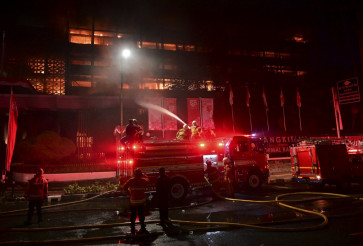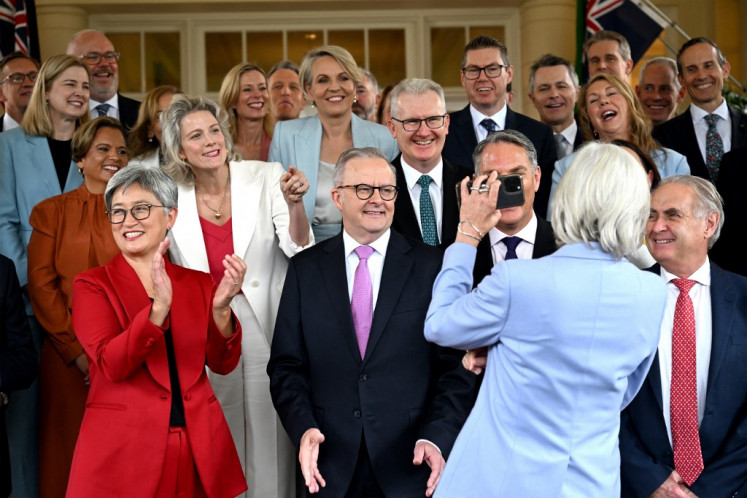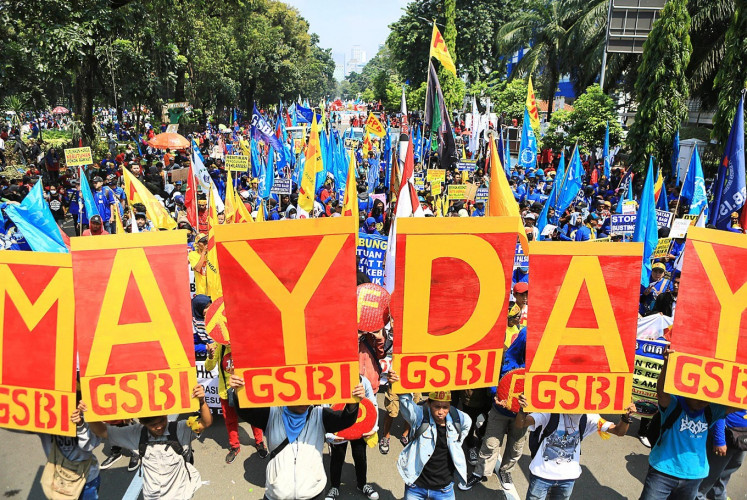IMO view: Pope Francis of Argentina
The Catholic Church offers moral leadership and influences political approaches even without actual power over political actors
Change text size
Gift Premium Articles
to Anyone

T
he Catholic Church offers moral leadership and influences political approaches even without actual power over political actors. In the 1970s, the papal nuncio in Jakarta had a crucial moral influence on the decision of Indonesia’s primarily Catholic security elite in the decision to allow political prisoners (Tapol) go free.
The nuncio had no power against or for anyone, but the Catholic Church did have moral power.
Later, Pope John Paul II had a crucial rule in encouraging the democratic movement in Poland.
Now the Catholic Church has a new pope and an opportunity to influence world politics in a new way.
There has been much discussion among political scientists about the implications of the nomination of Jorge Mario Bergoglio as the new pope.
In order to use this progressive move in the church for something good, we need to see the positive opportunities in the selection of this, more progressive pope.
What is more important is what we can convincingly argue he represents in the spheres where he is an authority and then use those representations as pre-agreements of argumentation among people who consider the pope a moral leader. For this we should focus on the “positive side” of the new pope.
Pope Francis is Argentinian, and thus his nationality offers an argument within the church against the implicit assumption that the world is divided between an intellectual, powerful, Western core, on the one side, and a periphery that is the object of Western charity and neocolonial, paternal care and pity, on the other.
Now the center of the Catholic world is in Argentina; the Third World is a subject, a mover.
Second, this pope declares his intellectual debt to Saint Francis of Assisi, who emphasized the now almost forgotten heritage of pro-poor thinking in Christianity. This, too, can be used for the mobilization of the Christian pro-poor heritage against a culture of greed that now defines the West.
I would like to see the Franciscan identity of the new pope as an opportunity for new alliances for social and economic justice, or at least as an argument against the holy alliance that has legitimized the position of capitalists.
Finally, I think we need to recognize the positive implications of the fact that the Catholic Church no longer has a German pope. No matter how smart and good the former pope was, and no matter how moral and just the new Germany is, his being a German made it difficult for him to publicly express understanding of the political grievances of Arab Muslims who suffered from the tough securitized regional policies of Israel.
Due to the historical baggage of Germany, the old pope hesitated from expressing opinions that could be interpreted as
antisemitism.
I pray wisdom for him to help resolve the tension between the Christian West and the Muslim world, his main task along with his commitment to helping the poor.
Timo Kivimäki
Helsinki









